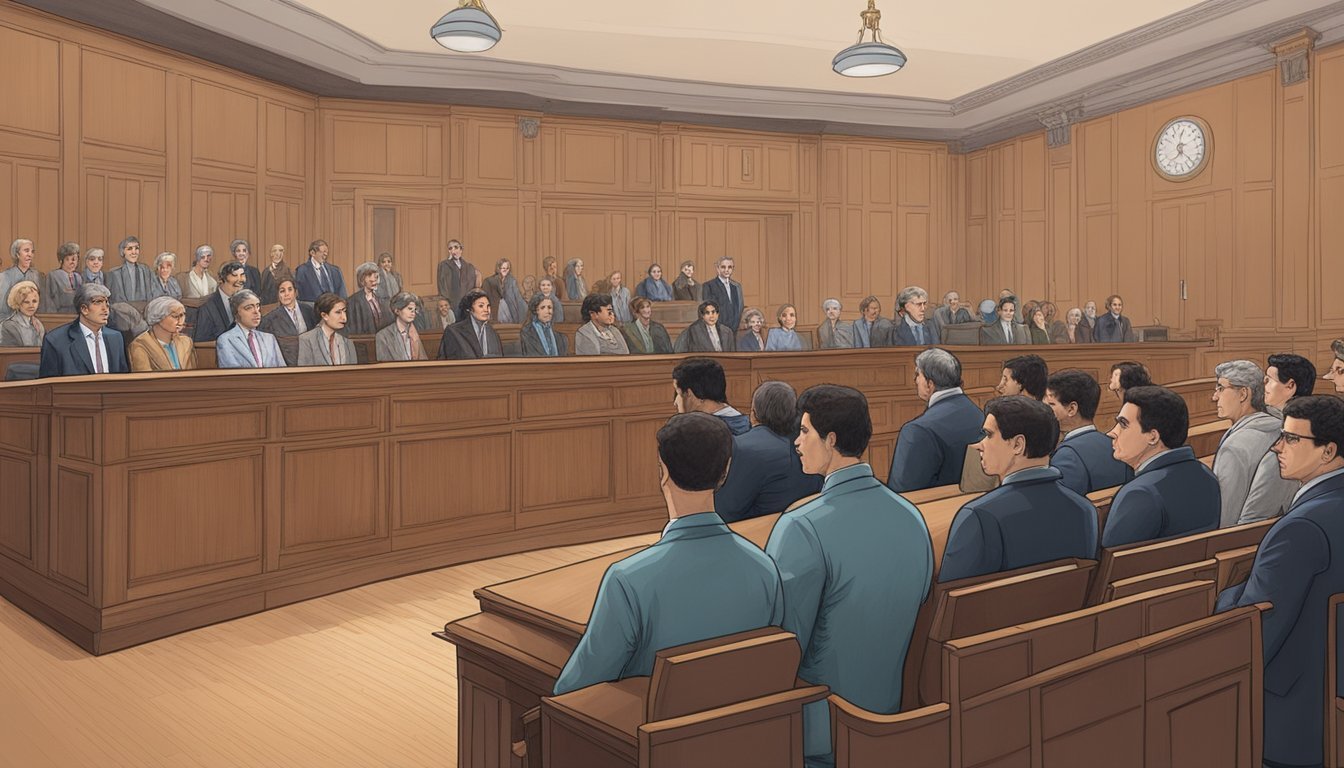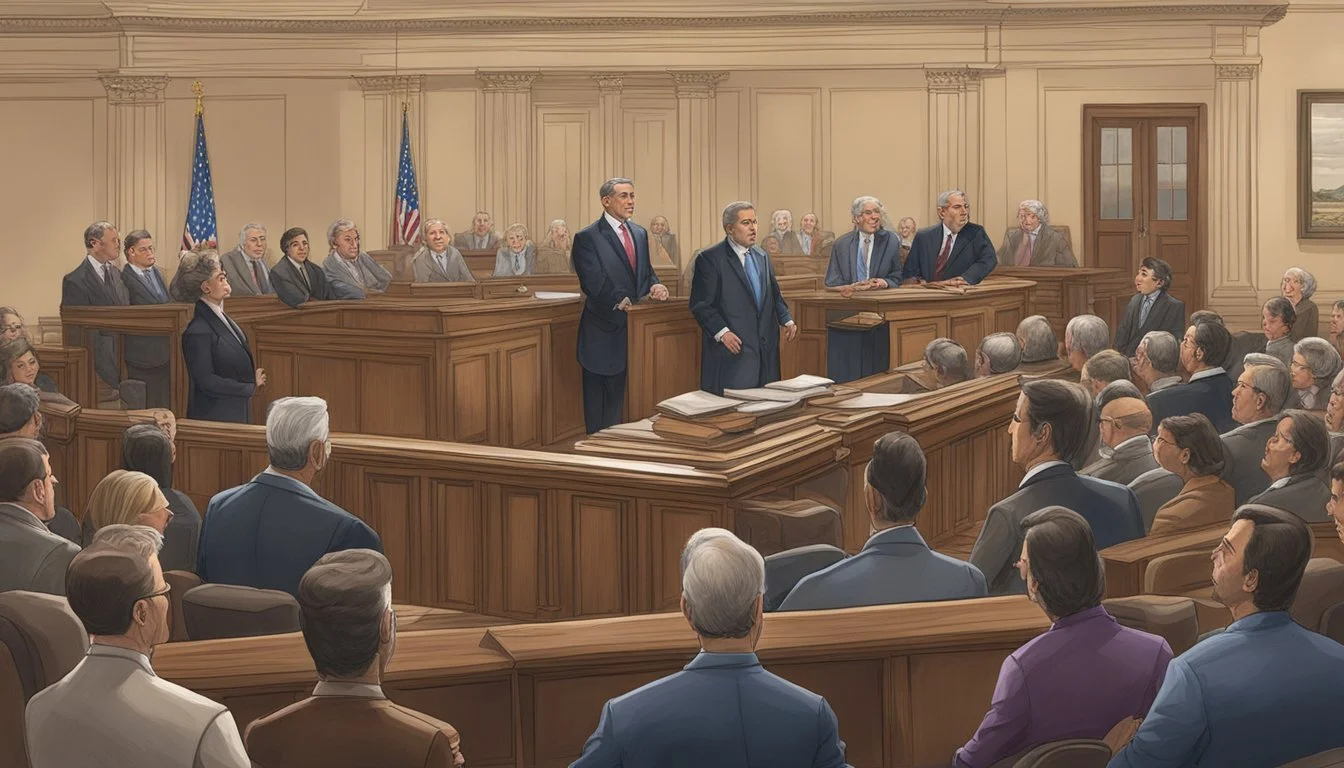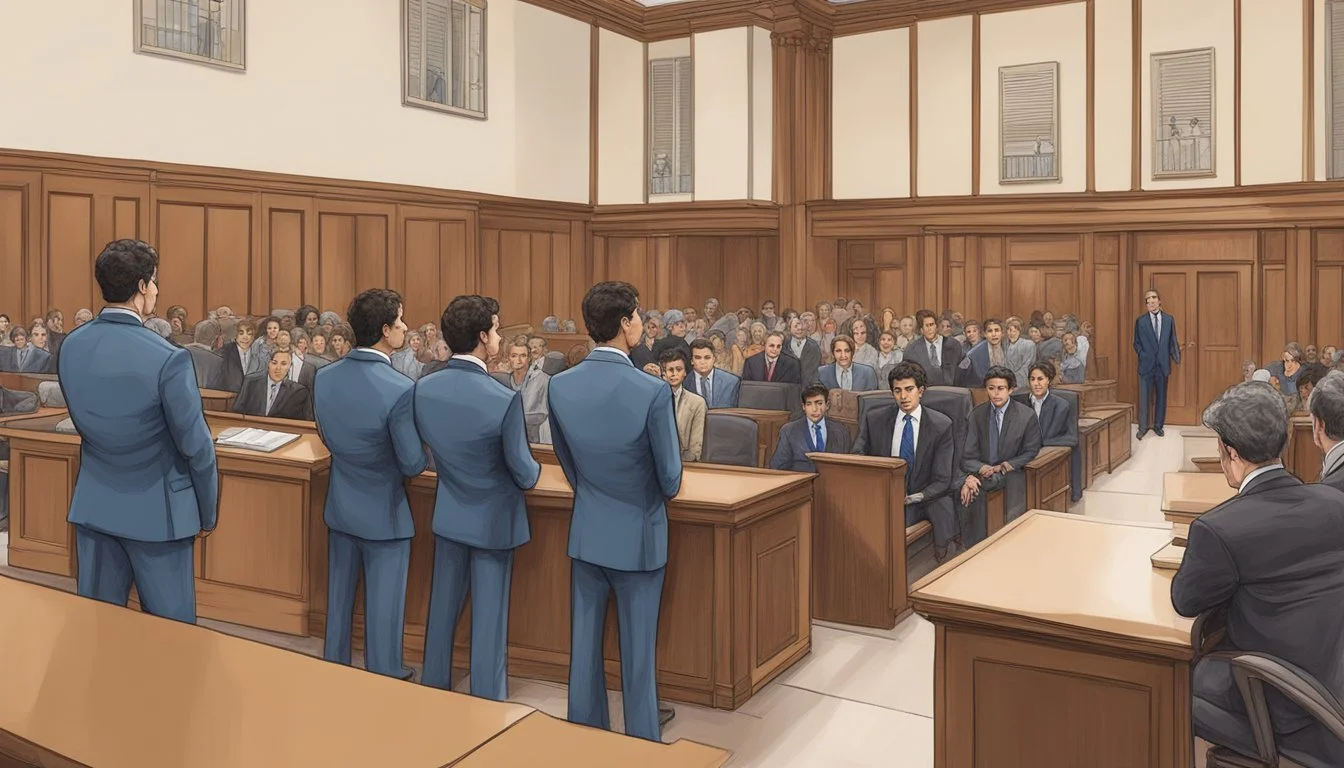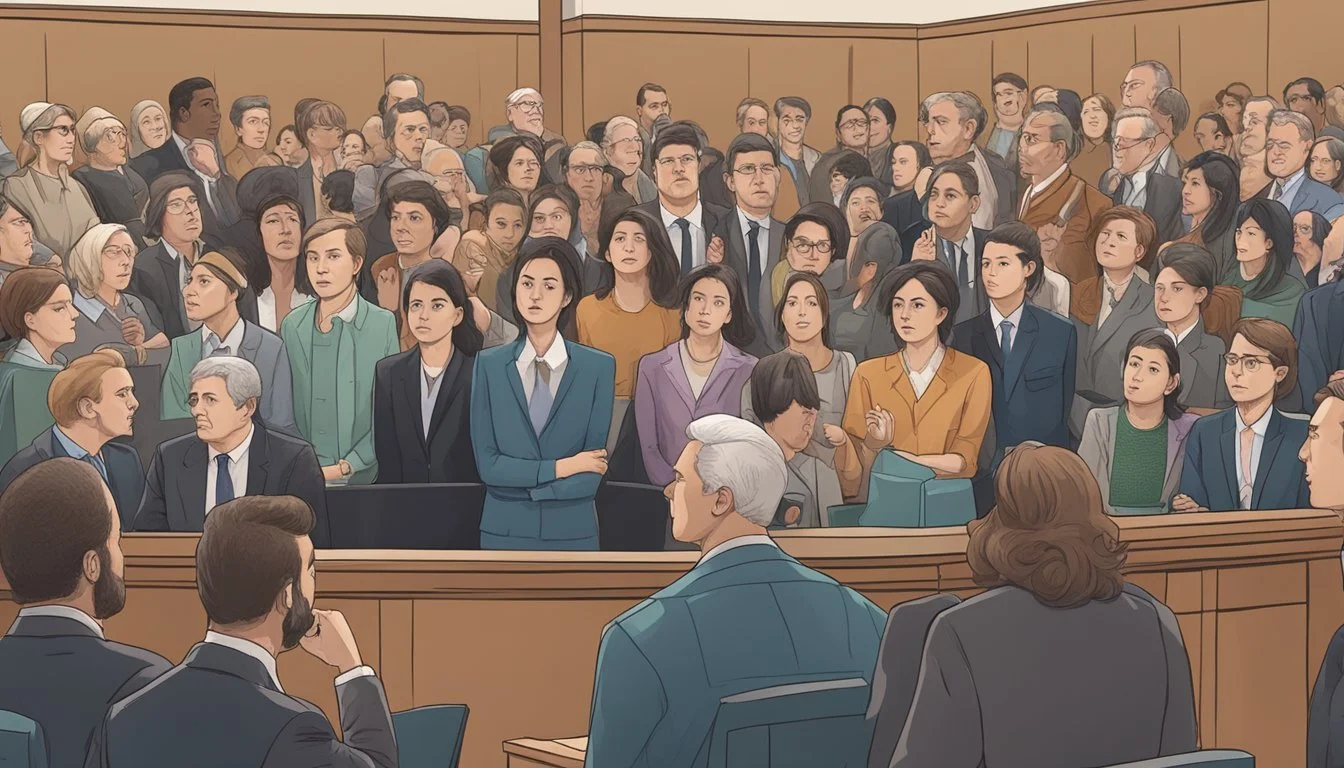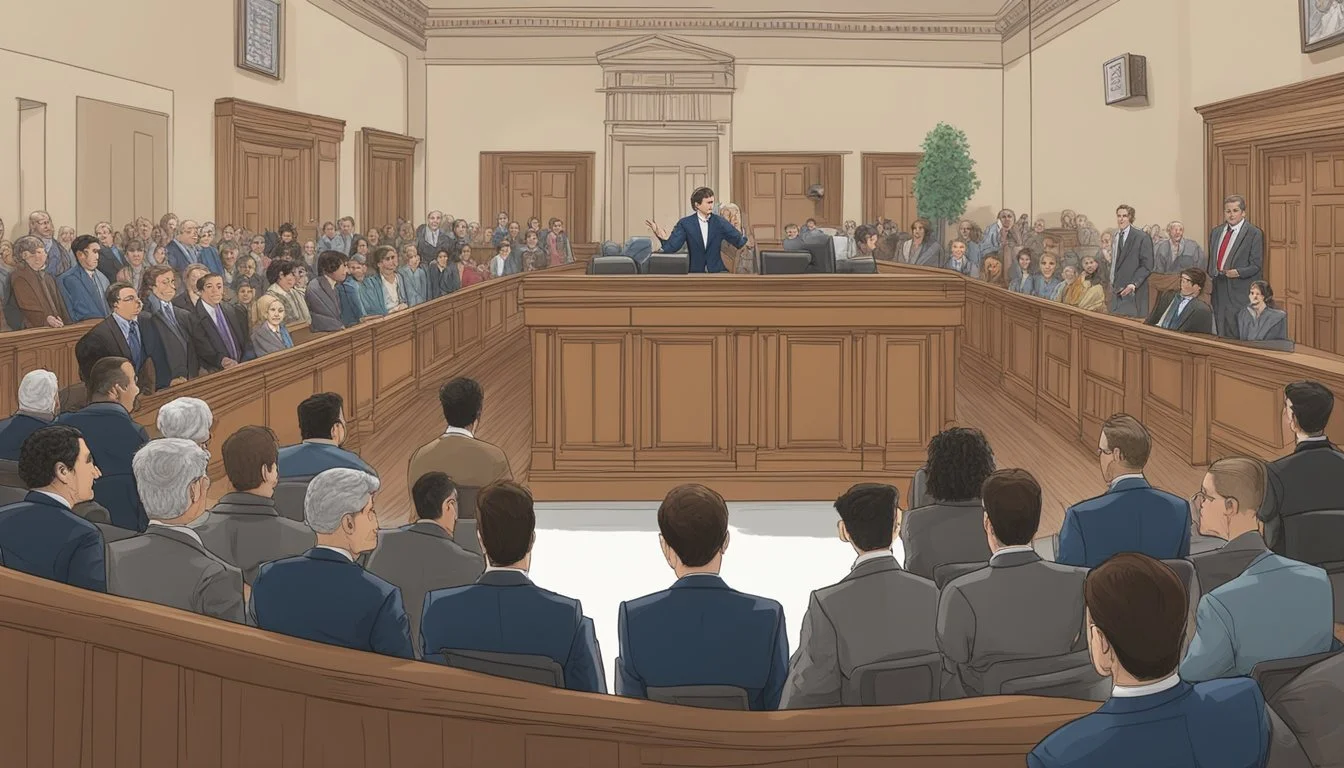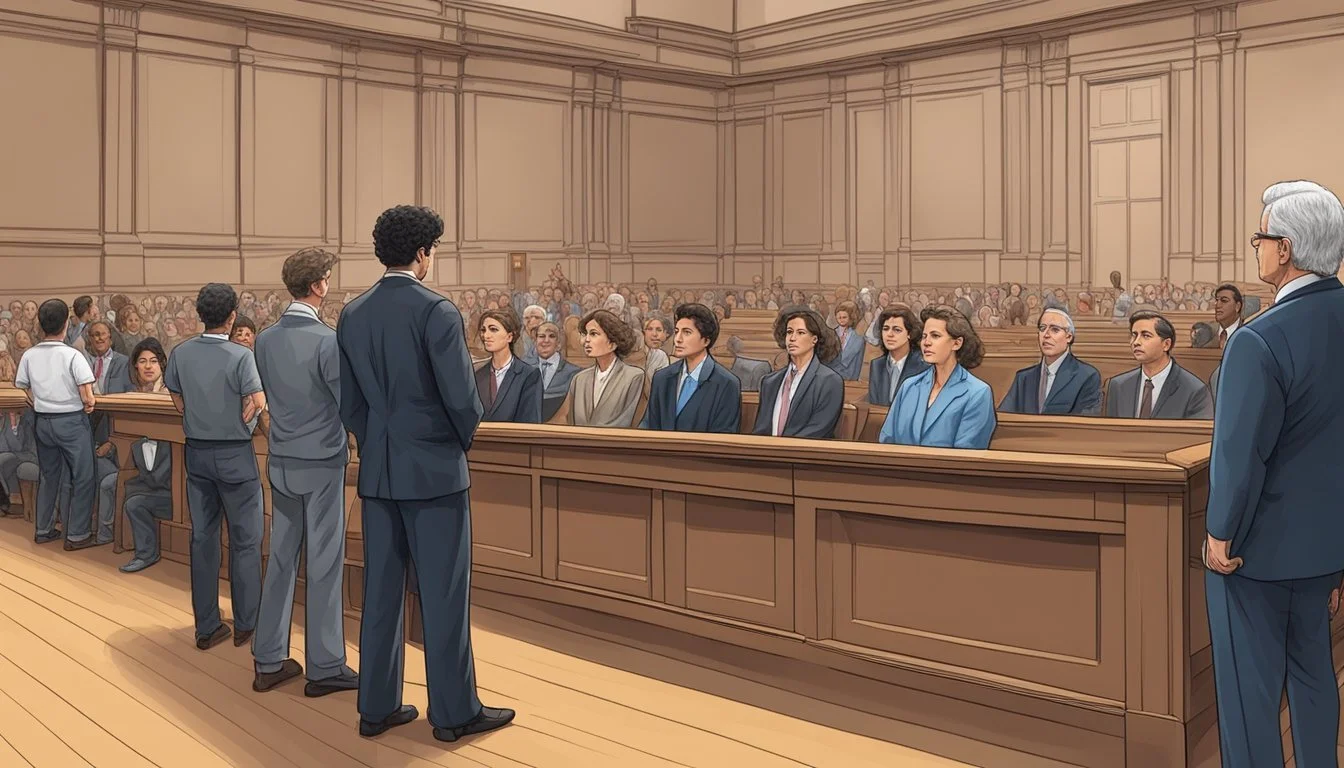Cultural Values on Trial: Public Opinion and the Menendez Brothers
Revisiting a Controversial Case
The Menendez brothers' trial in the early 1990s captivated America, exposing deep-seated cultural values and societal attitudes towards crime, justice, and family dynamics. As Lyle and Erik Menendez stood accused of murdering their wealthy parents, the case sparked intense media coverage and public debate.
The trial's widespread attention revealed how class, race, and media influence shaped public opinion and legal proceedings in high-profile cases. Television cameras in the courtroom brought the dramatic events into millions of homes, fueling a growing obsession with televised trials and true crime stories.
The Menendez case became a cultural touchstone, influencing entertainment, media coverage, and discussions about mental health and family abuse. Even decades later, the brothers' story continues to be revisited through documentaries, podcasts, and movies, demonstrating its lasting impact on American popular culture and perceptions of justice.
The Menendez Family Background
Jose and Kitty Menendez were the parents of Lyle and Erik, known as the Menendez Brothers. The family lived in a luxurious Beverly Hills mansion, embodying the American dream of wealth and success.
Jose Menendez was a Cuban immigrant who achieved remarkable success in the entertainment industry. He rose to become an executive at RCA Records and later LIVE Entertainment.
Kitty Menendez, born Mary Louise Andersen, was a former beauty queen and socialite. She met Jose while attending Southern Illinois University and later became a homemaker.
The Menendez family's affluent lifestyle included:
Expensive cars
Designer clothing
Lavish vacations
Private schools for their sons
Despite their outward appearance of success, the family harbored dark secrets. The brothers later claimed their father was abusive, though this remains a contentious point in the case.
The family's Beverly Hills mansion became infamous as the site of Jose and Kitty's brutal murders on August 20, 1989. This event thrust the Menendez name into the national spotlight and sparked a media frenzy.
The contrast between the family's privileged background and the shocking nature of the crime captivated public attention. It raised questions about the potential dark undercurrents beneath seemingly perfect facades.
The Murders and Initial Verdict
The Menendez brothers' case shocked the nation with its brutal violence and complex family dynamics. The events unfolded from a grisly crime scene to a highly publicized trial that captivated public attention.
Night of the Crime
On August 20, 1989, Jose and Kitty Menendez were shot multiple times in their Beverly Hills mansion. The couple was watching TV in the den when their sons, Lyle and Erik Menendez, entered with shotguns. Jose was shot point-blank in the back of the head. Kitty, attempting to flee, was shot in the leg before being killed with shots to her face and chest.
The brothers initially tried to establish an alibi by going to a movie and later calling 911 to report finding their parents dead. They claimed to have been out during the time of the murders.
Investigation and Arrest
Police initially suspected a mafia hit due to Jose's business dealings. The brothers' lavish spending spree following the murders raised suspicions. In March 1990, Erik confessed to his psychologist, who later informed police.
Lyle was arrested on March 8, 1990. Erik surrendered days later. Both were charged with first-degree murder. Evidence mounted:
Shotgun shells matching the murder weapon were found in Erik's car
A deleted computer file detailing the crime was recovered
Witnesses reported hearing the brothers discuss the murders
First Trial and Public Opinion
The trial began in July 1993 and was televised on Court TV. The brothers claimed self-defense, alleging years of sexual and emotional abuse by their father. This defense strategy divided public opinion:
Some viewed it as a ploy to avoid life sentences
Others saw it as exposing hidden family trauma
The prosecution argued the motive was inheritance. After six months, both juries deadlocked in January 1994. The hung jury reflected the public's split views on the case. This outcome set the stage for a retrial that would further captivate the nation.
Defense Claims and Public Reaction
The Menendez brothers' case sparked intense public debate due to their shocking defense claims and the media's portrayal of the events. The trial became a cultural phenomenon, raising questions about family dynamics, abuse, and justice.
Claims of Abuse
Erik and Lyle Menendez claimed they killed their parents in self-defense after years of physical and sexual abuse. Their attorneys argued that the brothers feared for their lives, believing their parents would kill them to prevent the abuse from being exposed.
The defense presented testimony from psychologists and family members supporting these claims. Some witnesses described the Menendez home as dysfunctional, with a domineering father and an unstable mother.
Public opinion was divided on the validity of these abuse allegations. Some viewed them as a plausible explanation for the killings, while others saw them as a manipulative tactic to avoid punishment.
Media Portrayal and Narrative
The Menendez case received extensive media coverage, shaping public perception of the brothers and their alleged motives. Television broadcasts of the trial captivated audiences nationwide.
Initial reports often portrayed the brothers as cold-blooded killers motivated by greed. As defense claims emerged, media narratives shifted to explore themes of familial abuse and trauma.
The 2017 TV series "Law & Order True Crime: The Menendez Murders" reignited public interest in the case. It presented a sympathetic view of the brothers, emphasizing their abuse claims.
Media coverage influenced public opinion throughout the trials. Some criticized the sensationalized reporting, arguing it overshadowed the complexities of the case and the legal proceedings.
Legal Proceedings and Reassessments
The Menendez brothers' case has undergone several legal twists and turns since their initial conviction. New evidence and changing societal attitudes have prompted reassessments of the original trial and sentencing.
Appeals and Habeas Petition
The Menendez brothers pursued multiple appeals after their 1996 conviction. Their attorneys filed habeas corpus petitions, challenging the constitutionality of their detention. These legal efforts aimed to overturn the life sentences without parole.
Key arguments in the appeals included:
Ineffective assistance of counsel
Jury misconduct allegations
Exclusion of certain evidence during trial
Despite these attempts, higher courts consistently upheld the original verdicts. The brothers remained incarcerated as their legal options dwindled.
Recent Developments and New Evidence
In a surprising turn, the case has gained renewed attention. District Attorney George Gascón recommended resentencing for the Menendez brothers in 2023. This decision stems from evolving views on childhood trauma and its impact on criminal behavior.
New evidence includes:
Expert testimony on long-term effects of abuse
Reassessment of the brothers' mental state at the time of the murders
The Los Angeles County Superior Court is now considering an evidentiary hearing. This process could potentially lead to reduced sentences or even release for Erik and Lyle Menendez.
Public opinion has shifted, with some viewing the brothers as victims of severe abuse rather than cold-blooded killers. The outcome of these proceedings may reshape legal approaches to similar cases in the future.
Cultural Impact and Legacy
The Menendez brothers' case profoundly shaped American media, entertainment, and public discourse on crime, justice, and family dynamics. It became a cultural touchstone that continues to fascinate audiences decades later.
Influence on Media and Entertainment
Court TV's gavel-to-gavel coverage of the Menendez trial marked a turning point in televised legal proceedings. The case spawned numerous adaptations across various media platforms. True crime documentaries, TV series, and films have revisited the story, offering new perspectives.
Netflix released a documentary series exploring the case in depth. Ryan Murphy's "American Crime Story" franchise dedicated a season to the brothers' story, further cementing its place in pop culture. These productions often reexamined evidence and testimony, sometimes challenging original narratives.
Discussion in Popular Culture
The case permeated popular culture, inspiring references and parodies. Saturday Night Live featured skits about the brothers, reflecting their status as household names. Social media platforms have seen renewed interest, with younger generations discovering and debating the case.
Kim Kardashian publicly discussed the case, bringing it to the attention of her massive following. This sparked conversations about wealth, privilege, and justice system inequalities. Online communities have formed around reexamining the case, often focusing on abuse allegations and mental health aspects.
The brothers' story continues to provoke discussions on family dynamics, trauma, and the nature of justice. It remains a reference point in debates about media influence on high-profile trials and public perception of criminal cases.
Current Status and Future Implications
The Menendez brothers' case continues to evolve, with potential legal developments and ongoing societal impacts. Their situation raises questions about rehabilitation, trauma, and the justice system's approach to complex cases.
Parole Possibilities and Legal Options
Lyle and Erik Menendez are currently serving life sentences without the possibility of parole. Recent developments have sparked discussions about potential resentencing. The Los Angeles District Attorney's office has recommended reviewing the case, citing new evidence and changing perspectives on trauma and abuse.
This recommendation could lead to a resentencing hearing. If granted, the brothers might become eligible for parole. Legal experts are divided on the likelihood of success, given the severity of the crime and the high-profile nature of the case.
The brothers' legal team continues to explore options for appeal and clemency. They argue that the original trial did not adequately consider the alleged abuse the brothers suffered.
Menendez Brothers Today
Lyle and Erik Menendez, now in their 50s, have spent over three decades in prison. They are housed in separate facilities in California. Both have pursued education and engaged in various prison programs.
Erik has obtained a degree in business management and works as a tutor for other inmates. Lyle has focused on art and writing, creating greeting cards and children's books.
The brothers have maintained their claims of childhood abuse. They express remorse for their actions while emphasizing the context of their trauma. Their case has gained renewed attention through social media and documentaries, leading to debates about their culpability and potential rehabilitation.
Impacts on the Legal System
The Menendez case continues to influence legal discussions and public perceptions of justice. It has prompted debates about:
The role of childhood trauma in criminal cases
Sentencing guidelines for young offenders
The effectiveness of life sentences without parole
Legal scholars argue that the case highlights the need for more nuanced approaches to complex crimes. Some advocate for increased consideration of psychological factors and trauma history in sentencing decisions.
The renewed interest in the case has also sparked conversations about prison reform and rehabilitation programs. Critics argue that the brothers' case exemplifies the need for more robust mental health support in the justice system.

